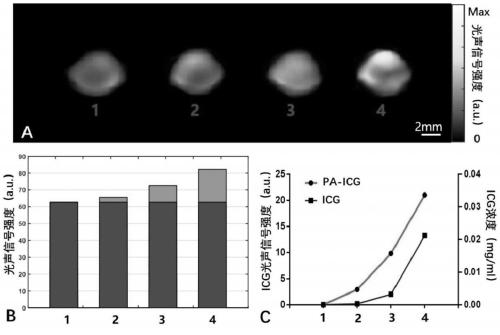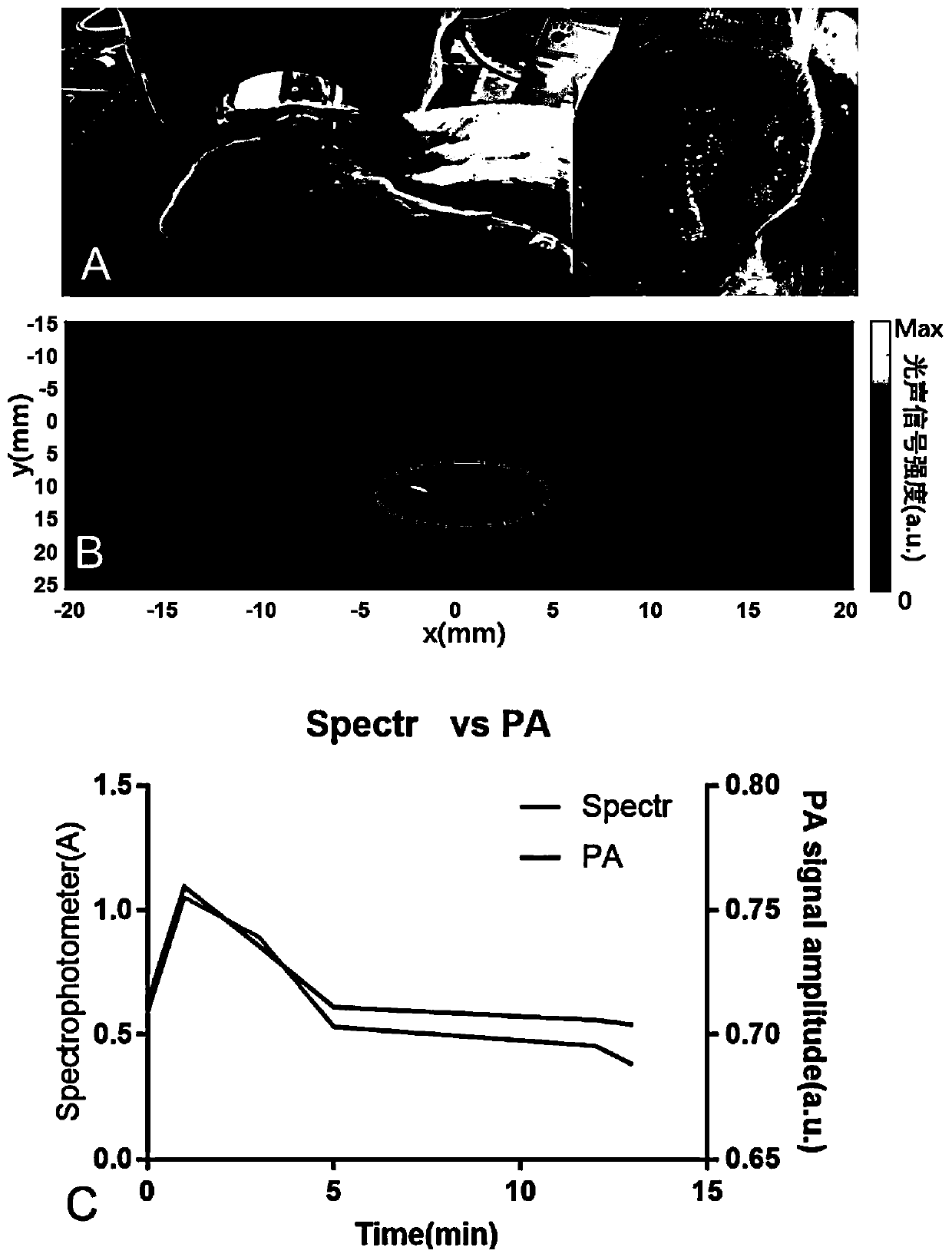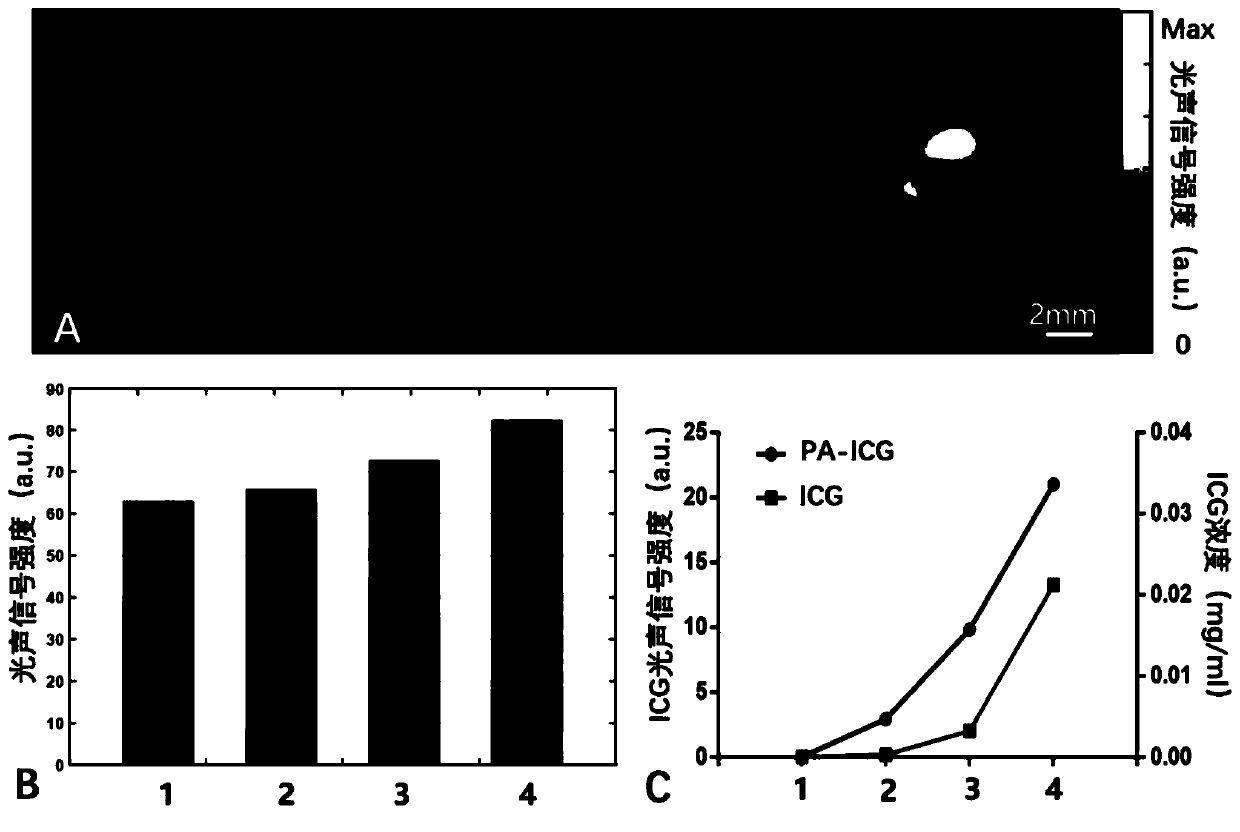Device for noninvasively detecting indocyanine green content in bodies
A technology of indocyanine green and detection body, which is applied in the fields of diagnostic recording/measurement, medical science, sensor, etc., can solve problems that have not yet been seen, achieve high consistency, save time, and save storage and management
- Summary
- Abstract
- Description
- Claims
- Application Information
AI Technical Summary
Problems solved by technology
Method used
Image
Examples
Embodiment 1
[0027] Embodiment 1 ICG detection device of the present invention
[0028] The present invention includes:
[0029] 1) A single-wavelength or multi-wavelength laser emitting device capable of emitting a wavelength of 805nm;
[0030] 2) The photoacoustic signal detection device is responsible for detecting the photoacoustic signal intensity value in blood vessels / blood when the laser emitting device emits light with a wavelength of 805nm;
[0031] 3) The photoacoustic signal conversion device is responsible for converting the photoacoustic signal intensity into ICG concentration.
[0032] The working principle of ICG detection device to detect ICG concentration is as follows:
[0033] Theoretically, the light absorption coefficient is expressed as:
[0034] mu a =e*c*ln 10=2.303 e*c (1)
[0035] In the formula, e is the molar extinction coefficient of the molecular group, and c is the molar concentration. According to the formula (1), it can be known that the light absorpt...
Embodiment 2
[0052] Embodiment 2 ICG detection device of the present invention
[0053] On the basis of Embodiment 1, the detection device of the present invention is also equipped with a photoacoustic tomography imaging system for converting photoacoustic signals into image signals.
Embodiment 3
[0054] Embodiment 3 ICG detection device of the present invention
[0055] On the basis of Embodiment 1 or 2, in order to ensure that the photoacoustic signal only originates in the blood vessel and is not affected by the surrounding skin and subcutaneous soft tissue, the device of the present invention also includes an ultrasonic positioning device, which is used for precise positioning of the intravascular ICG light Acoustic signal analysis and imaging.
PUM
| Property | Measurement | Unit |
|---|---|---|
| wavelength | aaaaa | aaaaa |
Abstract
Description
Claims
Application Information
 Login to View More
Login to View More - R&D
- Intellectual Property
- Life Sciences
- Materials
- Tech Scout
- Unparalleled Data Quality
- Higher Quality Content
- 60% Fewer Hallucinations
Browse by: Latest US Patents, China's latest patents, Technical Efficacy Thesaurus, Application Domain, Technology Topic, Popular Technical Reports.
© 2025 PatSnap. All rights reserved.Legal|Privacy policy|Modern Slavery Act Transparency Statement|Sitemap|About US| Contact US: help@patsnap.com



